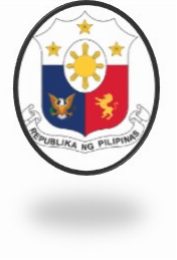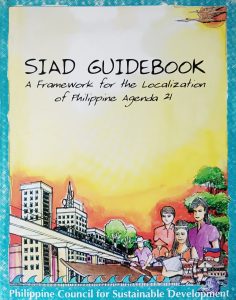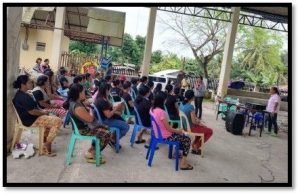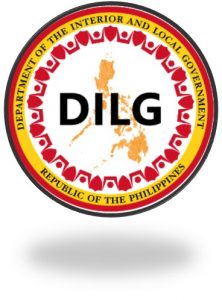Sustainable Integrated Area Development (SIAD) is the implementing framework of the Philippines’ blueprint for sustainable development: Philippine Agenda 21 (PA21). Because of this, SIAD advances PA21’s framework of “integral sustainable development” (ISD) which addresses all seven dimensions of development: ecological, economic, political, cultural, societal, human, and spiritual.
Contents
Solution Ecosystems Activator, Inc. (SEA) has developed the Sustainable Integrated Area Development 1.0 Program (SIAD 1.0), with the help of partners, in order to establish and demonstrate how SIAD prototypes are a powerful means to advance ISD. SIAD 1.0 is the first program in the country to implement SIAD at a town and city level. Past efforts at SIAD have been mostly sectoral by nature.
SEA uses the term “1.0” to indicate that it understands that, by the very nature of innovation, the first attempt will not be perfect. But technological and societal innovation means that creating a better version of the future (2.0) can only happen when we prototype (1.0) that future now.
RATIONALE
 LGUs exist to help advance the social welfare and development of the people. Sections 4 and 5 of the Philippine Constitution makes this very clear:
LGUs exist to help advance the social welfare and development of the people. Sections 4 and 5 of the Philippine Constitution makes this very clear:
The prime duty of the Government is to serve and protect the people. The maintenance of peace and order, the protection of life, liberty, and property, and the promotion of the general welfare are essential for the enjoyment by all the people of the blessings of democracy.”
Section 16 of the Local Government Code further details what the “General Welfare” of the people entails.
General Welfare. – Every local government unit shall exercise the powers expressly granted, those necessarily implied there from, as well as powers necessary, appropriate, or incidental for its efficient and effective governance, and those which are essential to the promotion of the general welfare. Within their respective territorial jurisdictions, local government units shall ensure and support, among other things, the preservation and enrichment of culture, promote health and safety, enhance the right of the people to a balanced ecology, encourage and support the development of appropriate and self-reliant scientific and technological capabilities, improve public morals, enhance economic prosperity and social justice, promote full employment among their residents, maintain peace and order, and preserve the comfort and convenience of their inhabitants.”
It is clear that, advancing the general welfare of the people, means advancing the many facets and faces of development. This general welfare provision of the Local Government Code therefore points to the following dimensions of development if it is to be sustainable and long-lasting: ecological, economic, political, cultural, societal, human and moral-spiritual.
Realizing these many dimensions of development within a defined political area is SIAD or Sustainable Integrated Area Development, an official development approach promulgated by the Philippine Council for Sustainable Development, Office of the President.
The framers of the Philippine Constitution and the Local Government Code both recognize that such comprehensive and harmonized integral sustainable development efforts will never be achieved by the sole mandates and powers of LGUs alone. LGUs need to develop societal partnerships to draw out the incredible energy of volunteerism and the innate, creative and powerful collective intelligence that reside among the people themselves. It has been established in many studies that creative Collective Intelligence results when groups and individuals of diverse backgrounds and competencies gather together in the pursuit of a collective goal that benefits all involved.
In short, two heads are better than one. The many sub-sectors within Government, Business, and Civil Society Organizations (CSOs), the key actors in any society, bring different perspectives, talents, resources and connections on the table. If visionary leadership by the Local Chief Executive manages to harmonize the different possibilities and resources within these three key realms of society, then the resulting development plans, policies and programs of government would be more appropriate, powerful and effective. Participatory societal governance ultimately results in good governance.
The 1987 Philippine Constitution provides, in Article II (State Policies) Section 23, the need for and the importance of harnessing the collective intelligence that resides in areas under the control of respective governmental authorities.
The State shall encourage non-governmental, community-based, or sectoral organizations that promote the welfare of the nation.
Civil society organizations, CSOs, is the current term used to collectively describe NGOs, POs, CBOs, and many other non-profit and non-government sectoral organizations.
Furthermore, to achieve economic prosperity, Article II, Section 20 of the Constitution, specifies the important role of business in development.
The State recognizes the indispensable role of the private sector, encourages private enterprise, and provides incentives to needed investments.
The Local Government Code, in its “Declaration of Policy” in Section 2(c), states:
It is likewise the policy of the State to require all national agencies and offices to conduct periodic consultations with appropriate local government units, non-governmental and people’s organizations, and other concerned sectors of the community before any project or program is implemented in their respective jurisdictions.
The Department of Interior and Local Government (DILG)’s Memorandum Circular 2021-056 brings all these considerations above on participatory, accountable, and transparent governance into sharp focus. In its rationale, the Implementing Rules and Regulations of the Local Government Code mandates:
LGUs to promote the establishment and operation of non-government organizations, people’s organizations and the private sector to make them active partners of local autonomy, and directly involve them in the planning and implementation of programs and projects in the LGUs.
In summary, the ultimate reason for the existence of LGUs is to advance the general welfare and integral sustainable development of people under its area of responsibility. Development has many facets and the LGU alone cannot achieve significant developmental gains. It needs to mobilize and harness the different talents, resources, and knowledge of the business and civil society organizations in its area of responsibility. This can be achieved when the LGU allows and harness strategic societal partnerships to flourish in within its jurisdiction.
The threefold partnerships between government, business, and civil society results in the emergence and mobilization of collective intelligence to creatively address the development challenges of the town. Ultimately, this collective activation of good will in a town will result in achieving broad-based, comprehensive sustainable development, resulting in economic prosperity, peace and order, and cultural renewal, to name just a few positive results.
Activating SIAD through Solution Ecosystems
SEA has created a practical approach for activating SIAD. SEA calls this the “solution ecosystems” approach. SEA describes this method as mobilizing the resources, networks, and experience of the “ecosystems” – consisting of stakeholder institutions within civil society, government, and business – to provide solutions around a specific societal challenge.
Introducing a solution ecosystems approach will increase the capacity of local governments implementing SIAD to absorb existing development funds, broaden its access to new developmental funds, and channel these to appropriate sustainable development programs and projects. In so doing, these SIAD programs and projects will benefit a significant number of the residents of the town and city implementing SIAD.
SEA has already started the early phases of its SIAD 1.0 installation. Its experience is already confirming that, indeed, SIAD activation through a solution ecosystems approach increases the development impact of local government and its civil society and business partners.
Overall Strategy of SIAD 1.0
The overall strategy of SIAD 1.0 is to concretely demonstrate the effectiveness of SIAD and the solution ecosystems approach through two initial prototypes:
- co-activating an operational SIAD in the town of Zarraga, in the Province of Iloilo, and
- advising in the activation of an operational SIAD in Bayawan City, in the Province of Negros Oriental.
Success of these two prototypes will inspire the adoption of similar efforts in other towns and cities of the country, triggering widespread intentions to advance integral sustainable development. When this happens, SEA will provide beginning design assistance for other interested Local Government Units (LGUs), whether cities or towns.
This overall strategy is already being affirmed. As SEA has begun work on these first two prototypes, local chief executives of other cities and towns are expressing interest in installing SIAD in their own LGUs.
Supportive Strategy of SIAD 1.0
No one town or city has all the resources, initiatives, and networks to achieve SIAD on its own. SIAD 1.0 therefore works to mobilize resources, initiatives, and networks from all over the country, even globally, in order to manifest SIAD in both Zarraga and Bayawan City. In effect, the SIAD town/city becomes the “convergence container” for all such resources, initiatives, and networks.
This approach has two unique and inspiring advantages. First, any proven or even promising global initiative, for example, can aid in the installation of SIAD in a specific location. Second, and in turn, SIAD provides a useful context for such initiatives to prototype. If successful, such initiatives thereby achieve a wide-ranging impact and have the possibility of becoming mainstreamed. It is the same, as well, for the other resources and networks that are all essential to implement SIAD.
SEA will use this supportive strategy to make SIAD a reality in Zarraga and Bayawan City as well as to make it accessible to all other interested LGUs upon request.
Goals of SIAD 1.0
- To advance these promising strategies, SIAD 1.0 has five over-arching goals:
- Activate an operational SIAD in the town of Zarraga, Iloilo Province, Central Philippines.
- Provide technical assistance for the installation of a SIAD process in the City of Bayawan, Negros Oriental, Central Philippines.
- Assist at least three more cities, towns, and/or mainstream institutions in designing SIAD initiatives.
- Communicate through quad media (TV, radio, newspaper, and internet) the on-going efforts at SIAD installation in Zarraga town and Bayawan City as well as deepen SIAD awareness and understanding in the general public.
- Strengthen the financial and institutional capacity of SEA, in order to undertake the above solution ecosystem prototypes.




